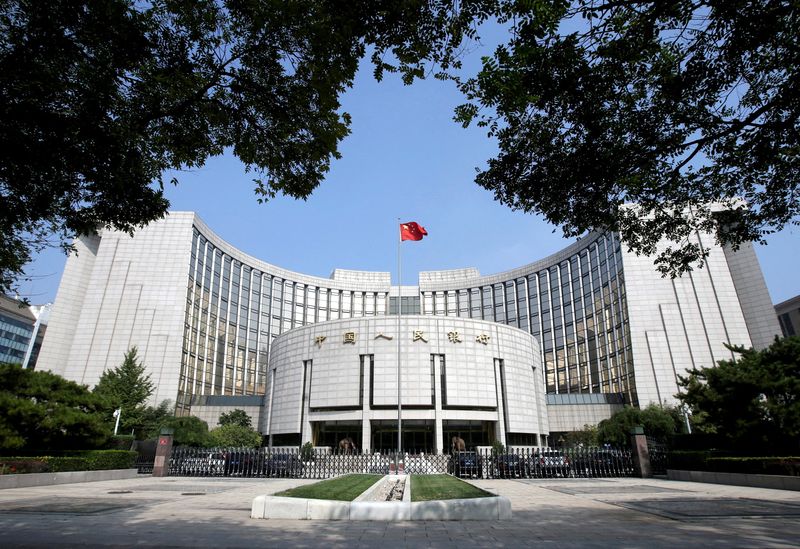SHANGHAI (Reuters) -China left benchmark lending rates unchanged at the monthly fixing on Wednesday, after lenders slashed the rates by higher-than-expected margins last month to revive economic activity.
WHY IT'S IMPORTANT
The steady monthly loan prime rate (LPR) fixings come within market expectations, as recent rate cuts squeeze banks' profitability and the yuan comes under fresh pressure with Donald Trump's imminent return to the White House.
BY THE NUMBERS
The one-year LPR was kept at 3.1%, and the five-year LPR was unchanged at 3.6%.
In a Reuters survey of 28 market participants conducted this week, all respondents expected the rates to remain unchanged.
CONTEXT
Beijing has announced a series of stimulus steps since late September, ranging from monetary easing, to fiscal measures and property market support, in a bid to pull the economy out of a deflationary funk and back towards the government's growth target.
But Trump's inflationary economic plan and fresh yuan weakness against the backdrop of investor fear of higher tariffs on Chinese goods may limit Beijing's monetary easing efforts for the time being.
China may wait until Trump takes office in January and reveals more of his policy intentions, analysts said.
During Trump's first presidency, the yuan weakened about 5% against the dollar in the initial round of U.S. tariffs on Chinese goods in 2018, and fell another 1.5% a year later when trade tensions escalated.
Since the Nov. 5 U.S. election, the yuan has fallen around 1.8% against the dollar.
New bank lending in China tumbled more than expected to a three-month low in October, as a ramp-up of policy stimulus to buttress a wavering economy failed to boost credit demand.

KEY QUOTES
"China's economy will continue facing risks though, from property market to strained local government finance, from persistently weak aggregate demand to a very likely escalation of trade and tech war," analysts at DBS said in a note this week, expecting a marginal 10-basis-point reduction in one-year LPR in December and another 50 bps cut in 2025.